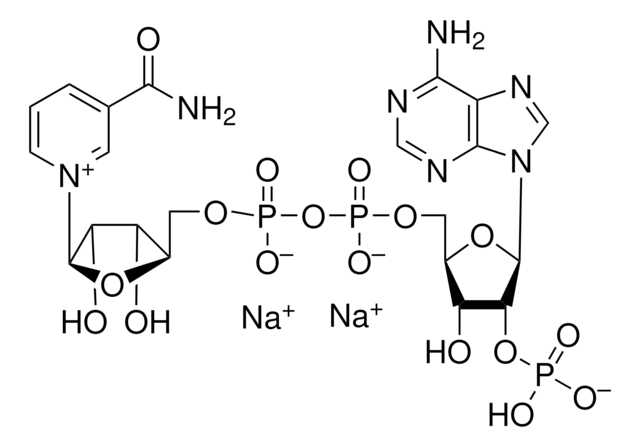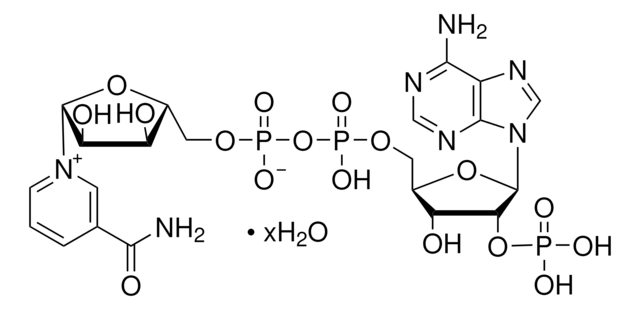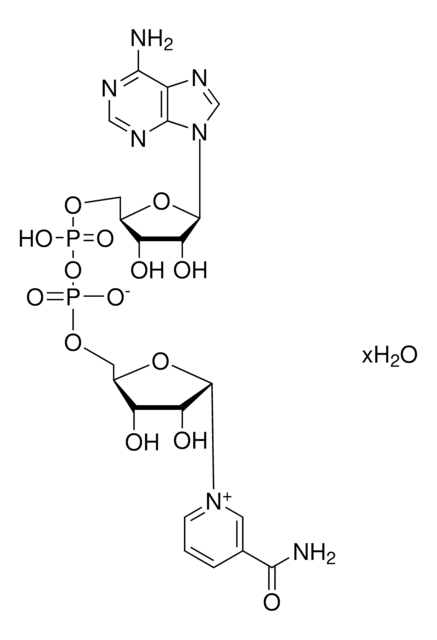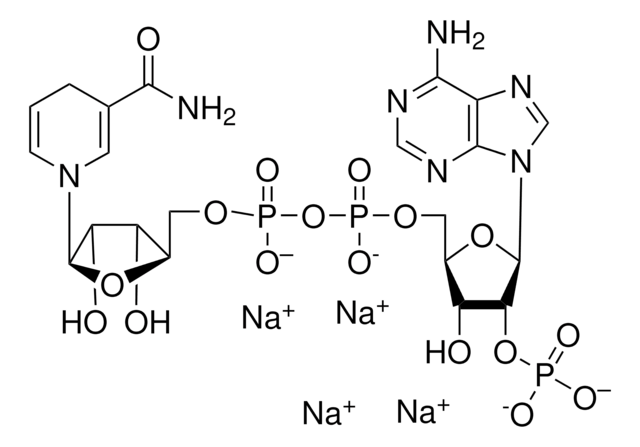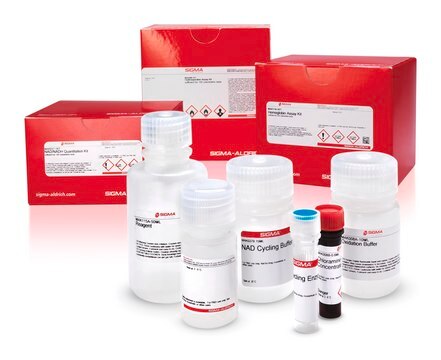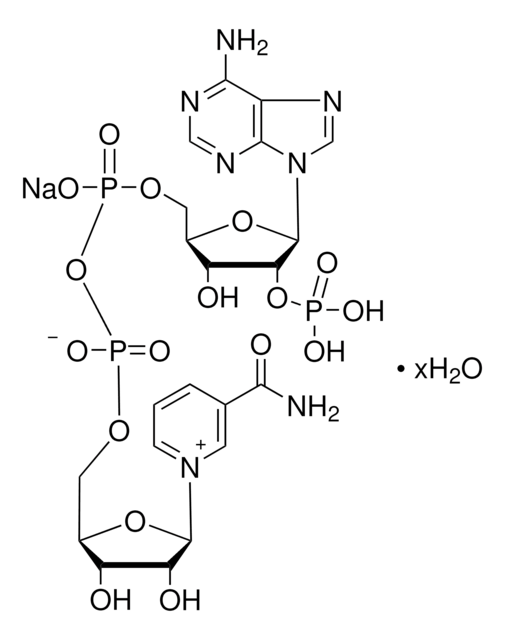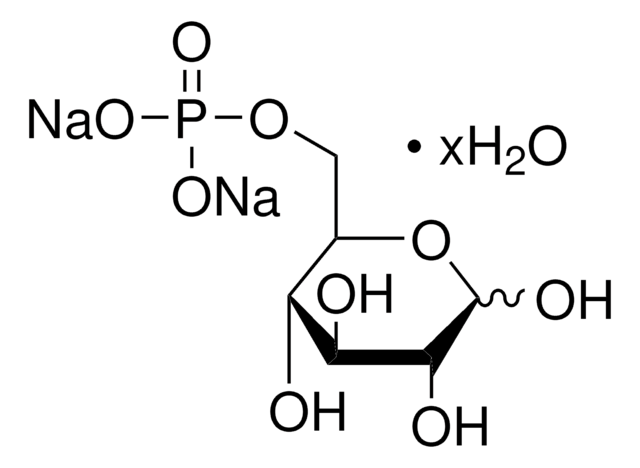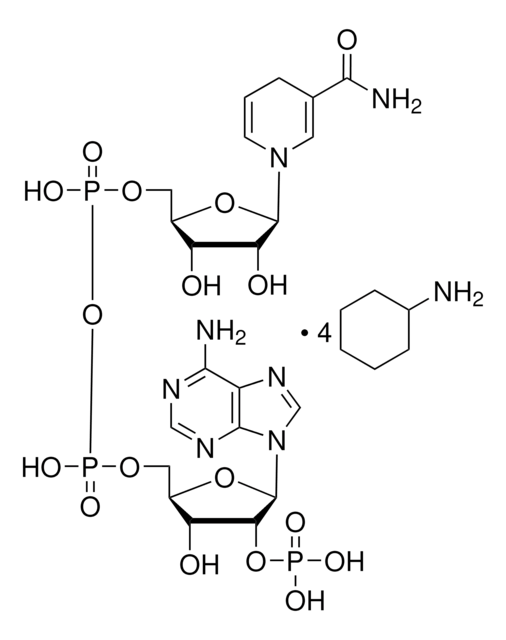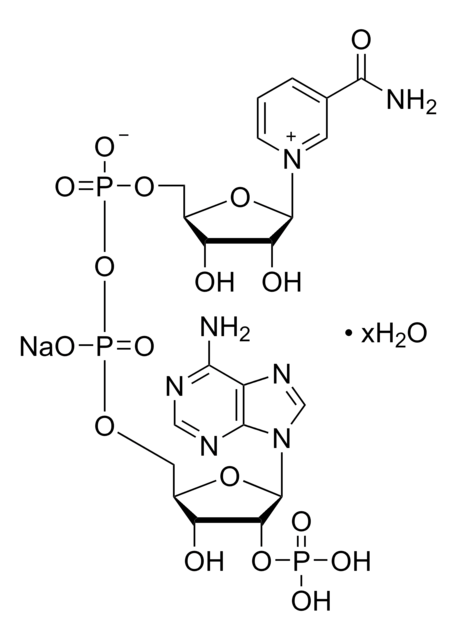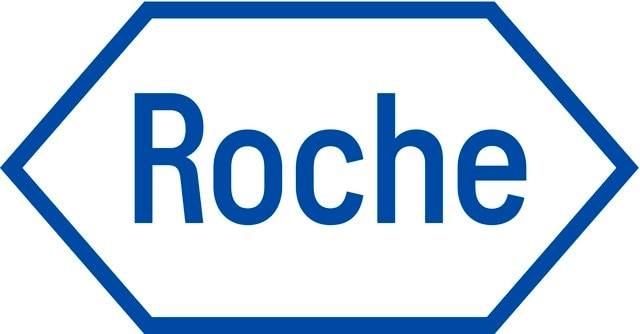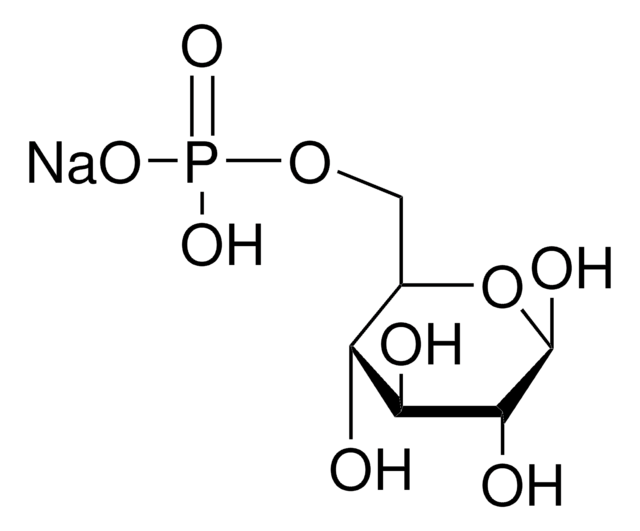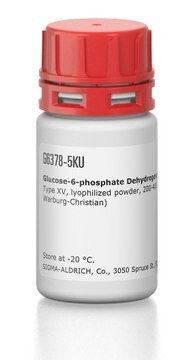NADP-RO
Roche
NADP
Disodium salt
Synonym(s):
β-Nicotinamide adenine dinucleotide phosphate disodium salt, β-NADH phosphate disodium salt, β-NADP-Na2, Triphosphopyridine nucleotide disodium salt
About This Item
Recommended Products
Quality Level
Assay
≥97%
form
powder
mol wt
Mr 743.4
Mr 787.4
packaging
pkg of 1 g (10128058001)
pkg of 100 mg (10128031001)
pkg of 5 g (10240354001)
pkg of 500 mg (10128040001)
manufacturer/tradename
Roche
pH
4.0 ± 1.0(10mg/mL)
λmax
260 nm
shipped in
wet ice
storage temp.
2-8°C
SMILES string
[Na+].[Na+].NC(=O)c1ccc[n+](c1)C2O[C@H](COP([O-])(=O)OP([O-])(=O)OC[C@H]3O[C@H]([C@H](OP(O)([O-])=O)[C@@H]3O)n4cnc5c(N)ncnc45)[C@@H](O)[C@H]2O
InChI
1S/C21H28N7O17P3.2Na/c22-17-12-19(25-7-24-17)28(8-26-12)21-16(44-46(33,34)35)14(30)11(43-21)6-41-48(38,39)45-47(36,37)40-5-10-13(29)15(31)20(42-10)27-3-1-2-9(4-27)18(23)32;;/h1-4,7-8,10-11,13-16,20-21,29-31H,5-6H2,(H7-,22,23,24,25,32,33,34,35,36,37,38,39);;/q;2*+1/p-2/t10-,11-,13-,14-,15-,16-,20?,21-;;/m1../s1
InChI key
WSDDJLMGYRLUKR-FHQWUTKFSA-L
Looking for similar products? Visit Product Comparison Guide
Related Categories
General description
Application
Preparation Note
10 mg/ml in aqueous solution, contains at least 99% NADP after 4 weeks at 2 to 8 °C
Analysis Note
Absorbance at 340 nm: Imidazol buffer, 100 mM pH 6.7, NADP 2 mM (= 14.87 mg/10 ml) : A340 approximately 0.100.
Absorbance at 360 nm: Aqueous solution of NADP, 10 mg/ml: A360 approximately 0.200-0.250.
Other Notes
also commonly purchased with this product
Storage Class Code
13 - Non Combustible Solids
WGK
WGK 1
Flash Point(F)
Not applicable
Flash Point(C)
Not applicable
Certificates of Analysis (COA)
Search for Certificates of Analysis (COA) by entering the products Lot/Batch Number. Lot and Batch Numbers can be found on a product’s label following the words ‘Lot’ or ‘Batch’.
Already Own This Product?
Find documentation for the products that you have recently purchased in the Document Library.
Customers Also Viewed
Our team of scientists has experience in all areas of research including Life Science, Material Science, Chemical Synthesis, Chromatography, Analytical and many others.
Contact Technical Service